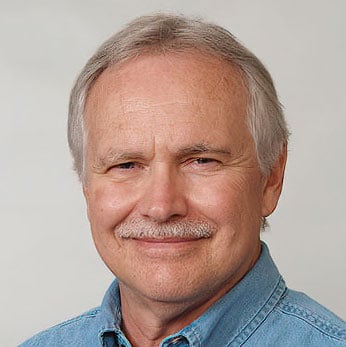The following tip is from the ISA book by Greg McMillan and Hunter Vegas titled 101 Tips for a Successful Automation Career, inspired by the ISA Mentor Program. This is Tip #50, and was written by Hunter.
And so we have finally reached our last tip. Trust me when I say that this has NOT been an easy task. Distilling a career of engineering experience into one- or two-page tips is tough! For the last tip, we chose this subject because we believe an individual should never stop learning and improving … and you cannot improve unless you know what you are doing wrong.
The value of following this tip may seem obvious, especially to a young engineer, but it is not so for an older, more experienced professional. As engineers rise up the technical ladder and gain more prestige, asking for feedback often becomes increasingly difficult. Ego and pride get in the way and it becomes difficult to admit fault or error. As soon as that mindset creeps in, further improvement becomes impossible and decline is inevitable. The fact is that nobody is perfect and regardless of how high in his or her career an engineer might be, constant adjustments are necessary.
Concept: After wiring a panel that you designed or working with a graphic that you created, ask for feedback from the technicians or operators. At the end of a large job, pull the team together and review the project to see what went well and what did not. Always seek to improve everything you do.
Details: Any day that passes without learning something is a wasted day. Continuous growth and improvement should be your goal regardless of your level of experience. The only way to accomplish that is to ask for feedback. Expand beyond the usual list of client feedback forms or follow-up phone calls that most companies employ. What did the operators like/dislike about the system? Has Maintenance had any problems with a piece of equipment since it was installed? Do the technicians have any suggestions for improving a panel design to make it easier to fabricate or troubleshoot? Does the electrical contractor have any ideas for improving the design/installation documentation for the next project? All of these people can provide valuable ideas for improvement and you are probably the first person to actually ask their opinion. Ask the question, and then LISTEN to what they have to say.
Watch-Outs: Do not get defensive. Most people feel the need to immediately defend their work against criticism. No matter how well founded the criticism, resist this urge. If the criticism seems unwarranted, it is acceptable to ask further questions to determine exactly why the person feels as they do, but it is not acceptable to deny or disparage that person’s point of view. Getting defensive will ensure that you will never receive any feedback from that person again.
Exceptions: If you are a leader, asking your direct reports for feedback can be problematic. They are understandably motivated to say only positive things for fear (however unfounded) that any negative comments could be held against them. It may be possible to establish a strong relationship with a senior team member and let him or her solicit general feedback from the team without specifically attributing a comment to a particular member. Sometimes other senior managers or project leaders can gather feedback from the team through other venues (such as performance reviews, etc.) or during casual conversation.
Insight: Possibly the most illuminating feedback will come from close friends or colleagues. These people, above all others, are in a position to straighten you out when you need it. When this happens fight back the defensive response, listen to what they have to say, and take it to heart.
Rule of Thumb: Continuous improvement requires the continuous solicitation of feedback. Once that feedback is received, ACCEPT it and act on it.
About the Author
Gregory K. McMillan, CAP, is a retired Senior Fellow from Solutia/Monsanto where he worked in engineering technology on process control improvement. Greg was also an affiliate professor for Washington University in Saint Louis. Greg is an ISA Fellow and received the ISA Kermit Fischer Environmental Award for pH control in 1991, the Control magazine Engineer of the Year award for the process industry in 1994, was inducted into the Control magazine Process Automation Hall of Fame in 2001, was honored by InTech magazine in 2003 as one of the most influential innovators in automation, and received the ISA Life Achievement Award in 2010. Greg is the author of numerous books on process control, including Advances in Reactor Measurement and Control and Essentials of Modern Measurements and Final Elements in the Process Industry. Greg has been the monthly "Control Talk" columnist for Control magazine since 2002. Presently, Greg is a part time modeling and control consultant in Technology for Process Simulation for Emerson Automation Solutions specializing in the use of the virtual plant for exploring new opportunities. He spends most of his time writing, teaching and leading the ISA Mentor Program he founded in 2011.
Hunter Vegas, P.E., holds a B.S.E.E. degree from Tulane University and an M.B.A. from Wake Forest University. His job titles have included instrument engineer, production engineer, instrumentation group leader, principal automation engineer, and unit production manager. In 2001, he joined Avid Solutions, Inc., as an engineering manager and lead project engineer, where he works today. Hunter has executed nearly 2,000 instrumentation and control projects over his career, with budgets ranging from a few thousand to millions of dollars. He is proficient in field instrumentation sizing and selection, safety interlock design, electrical design, advanced control strategy, and numerous control system hardware and software platforms.




